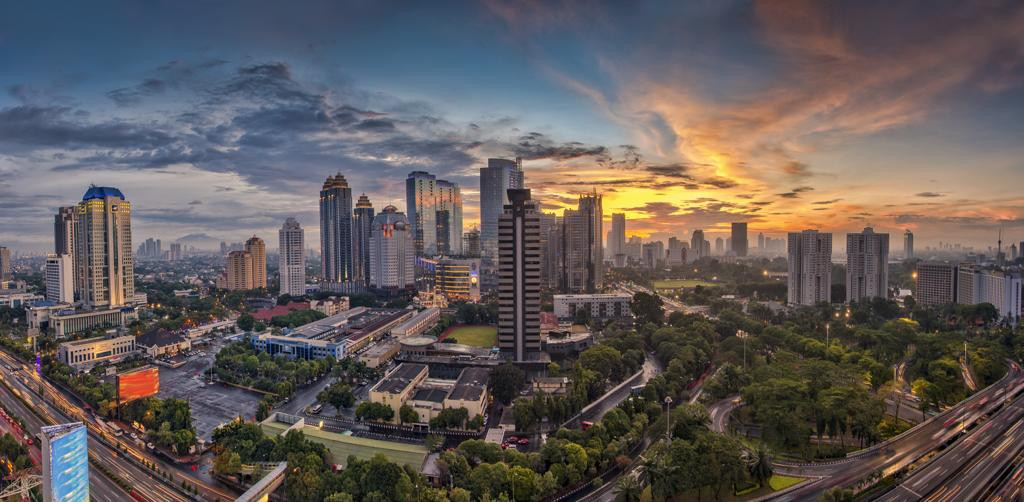Popular Reads
Top Results
Can't find what you're looking for?
View all search resultsPopular Reads
Top Results
Can't find what you're looking for?
View all search resultsTechnology transfer at the heart of energy cooperation
Facilitating technology transfer will help Indonesia turn its already strong climate commitments into stronger action.
Change text size
Gift Premium Articles
to Anyone
E
nergy transition is a key element of countries’ efforts to achieve their emissions targets. Moving away from fossil fuels, especially for electricity generation, is essential if the world is to limit global temperature rises to 1.5 degrees Celsius.
The world still generates a third of its electricity from coal according to the International Energy Agency (IEA), reaching an all-time high in 2022. It is imperative to see more green energy across the world – both replacing existing fossil fuel facilities, and to support low- and middle-income countries (LMICs) for which increased access to electricity and equitable economic growth are non-negotiable.
Emerging economies face two key challenges in growing the role of green energy in their economies. First, access to capital. Energy transition in 48 developing economies is estimated by United Nations Conference on Trade and Development (UNCTAD) to require almost US$6 billion in investment every year between 2023 and 2030, or 19 percent of their gross domestic product – something those countries cannot hope to finance alone.
Second, access to advanced technologies that allow green technologies to be cheaper, cleaner, and more efficient, and provide a real competitor to cheap coal and wood.
But, with so many international collaborations and pledges on the table, has the world witnessed a seamless transfer of technology? And has the global financing agreements on green energy made the transfer of technology possible?
One of the latest milestones on green financing is the Just Energy Transition Partnership (JETP) which Indonesia and the International Partners Group (IPG) announced last year at the Group of 20 Leaders’ Summit in Bali. While this partnership has the potential to unleash much-needed investment to accelerate just and gradual energy processes in Indonesia, it remains to be seen whether this commitment will also be able to fast-track efforts to harness the power of technology.
Facilitating technology transfer will help Indonesia turn its already strong climate commitments into stronger action. Technology holds the potential to make green energy more efficient and lower cost, helping to displace fossil fuels faster. The Southeast Asian country has committed to emissions reductions of 32 percent unconditionally and 43 percent conditionally under its Enhanced Nationally Determined Contribution, meeting the Net Zero Emissions (NZE) target by 2060.
Part of the commitment is to increase the share of new and renewable energy (NRE) of Indonesia’s overall energy mix to 31 percent by 2050 – with conditional commitments under JETP significantly more ambitious. This is where technology plays a critical role, because shifting the energy production requires the latest innovations – many of which only advanced industrialized economies have.
To witness the smooth technology transition, we need a stronger political will by the advanced economies. As it stands, there is already a gap of resources and financing.
According to the Tony Blair Institute report launched in 2022 there is a huge climate divide between developed countries and LMICs. The report calls for the advanced economies to honor their climate-finance pledges, in particular the pledge to channel $100 billion in climate financing annually (made at COP15 in 2009). The pledge has not yet been realized, and we can see LMICs experiencing “pledge fatigue”.
Many developing countries around the world have instead demonstrated their own policy breakthroughs and development initiatives that can be further leveraged by technology transfer.
In Indonesia, the government has looked for ways to break its link between growth and higher CO2 emissions. Efforts to decarbonize its power system and energy-intensive sectors include initiatives like the Energy Transition Mechanism (ETM) Country Platform.
Indonesia and some other countries have demonstrated their commitments, and now we need more effective international collaboration, based on mutual respect and deeper understanding of local context, to help them take the next critical step to upgrade green technology. A cookie cutter technology transfer strategy will not work because each country is presented with its unique set of knowledge, resources, and human capital challenges.
With unprecedented opportunity for LMICs to establish a modern, low-carbon energy system, it is critical for developed economies to support this transition by prioritizing green technology investment and technology partnerships in these emerging economies.
By doing so, the global communities do not only mitigate the worst impacts of climate change but also support LMICs to achieve their national objectives of job creation, industrialization, and sustainable economic development.
***
The writer is head of economic prosperity at Tony Blair Institute, Indonesia.











